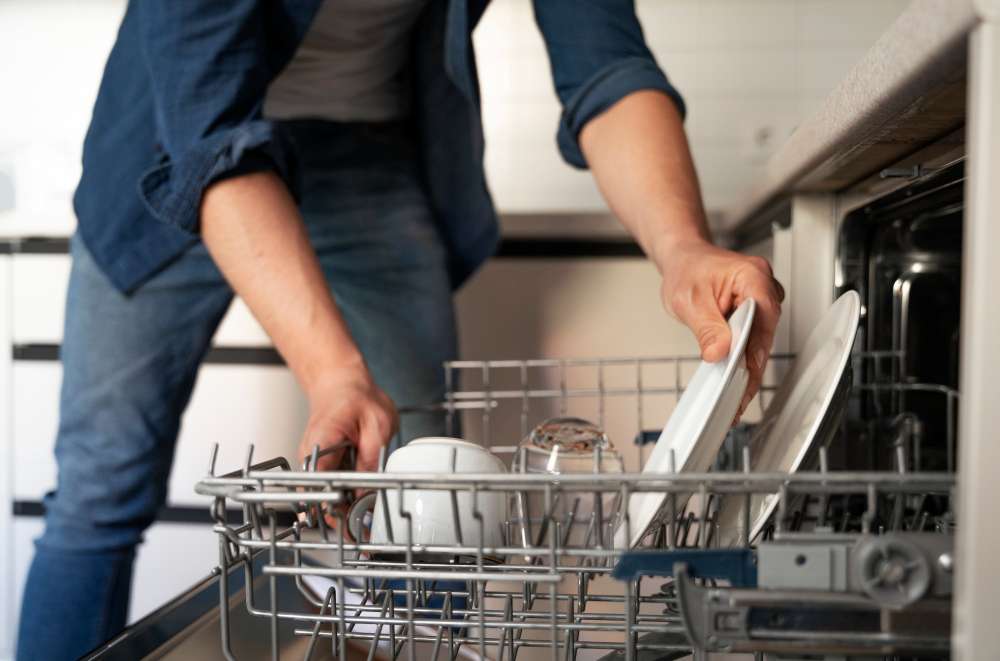Dishwashers are a modern convenience many of us can't imagine living without. They save time, water, and effort, making daily chores easier. However, like any appliance, dishwashers are prone to plumbing problems that can disrupt functionality and leave us with a sink full of dirty dishes. In this blog post, we'll explore some common dishwasher woes, their underlying plumbing issues, and practical solutions to get your dishwasher to run smoothly.
1. Clogged Drain
One of the most common issues with dishwashers is a clogged drain. Over time, food particles, grease, and soap scum can accumulate in the dishwasher's drain hose or filter, obstructing water flow and preventing proper drainage.
Start by inspecting and cleaning the dishwasher's filter and drain basket to remove debris. Next, use a plumber's snake or a wire hanger to clear any obstructions from the drain hose. Finally, run a cycle with a dishwasher-safe cleaner to dissolve built-up residue and prevent future clogs.
2. Leaky Hose or Connections
Water damage and the formation of mold beneath the dishwasher might result from leaks around the hoses or connectors of the dishwasher. Loose or damaged hoses, worn-out gaskets, or faulty connections are common culprits of dishwasher leaks.
Check the dishwasher's hoses and connections for signs of wear, corrosion, or damage. To prevent leaks, tighten loose connections and replace any damaged hoses or gaskets. Consider using plumber's tape or pipe sealant to create a watertight seal around threaded connections.
3. Faulty Water Inlet Valve
The water inlet valve controls water flow into the dishwasher during the wash cycle. If the valve is defective or clogged with sediment, it can prevent the dishwasher from filling with water or cause low water pressure.
Disconnect the dishwasher from the power source and shut off the water supply before inspecting the inlet valve. To clear any sediment or debris that might be obstructing the water flow, clean the valve screen. If the valve is damaged or malfunctioning, replace it with a new one to restore proper water flow.
4. Poor Drainage
Inadequate drainage can leave dishes with a film of soap residue and cause foul odors to emanate from the dishwasher. A malfunctioning drain pump, clogged drain hose, or improper installation can all contribute to poor drainage.
Examine the drain pump and hose for damage or obstructions, and remove any debris obstructing the water flow. Ensure the dishwasher's drain hose is positioned correctly and isn't bent or kinked, as this could impede drainage. Cleaning the dishwasher by running a cycle with vinegar or baking soda might help get rid of soap residue and smells.
By addressing these common plumbing problems and following these practical solutions, you can keep your dishwasher running smoothly and efficiently for years. In order to identify possible problems early and prevent expensive repairs later on, remember to do routine maintenance and inspections. You may have the ease of a dishwasher that works well without having to deal with unforeseen problems if you give it some care and attention.

